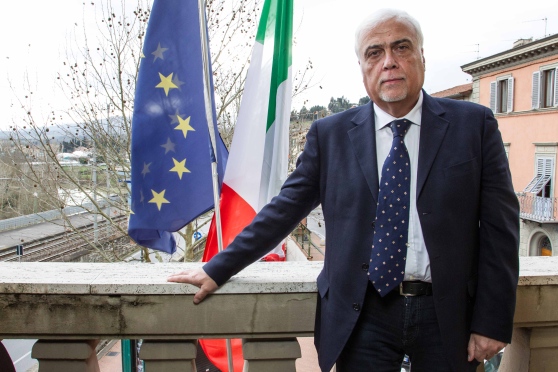Matteo Renzi resigned on Monday, March 5, a day after he led Partito Democratico to a long-foretold defeat.
Since his election at the helm of PD in 2013, Renzi failed to make the left a force that would be distinct or attractive. And although he advocated a review of the European fiscal compact, he failed to project a convicing vision for the Italian left. In December 2017, a vocal minority of PD left to form the Liberi e Uguali platform. But, many of his voters did not abandon the left. They just stayed at home. Almost one in two Italians were not inspired to vote last Sunday.
That is, even in Renzi’s hometown, Rignano sull’Arno.
Last year Daniele Lorenzini left the Democratic Party; he had only been a member of the party for five years. However, he did not leave politics. Instead, he went back to the his home town, Rignano sull’Arno. He run a campaign for his reelection as a Mayor for a second time, against his party. He won. And that was humiliating for Renzi.
Renzi’s father kicked off his own political career as a left-wing councilman in Rignano sull’Arno. Under his own leadership of the party, the town was lost to PD. That was a warning.
The fact that an independent with a typically local list – “Together for Rignano” – could unseat the dominance of the ruling Partito Democratico (PD) with a massive 49% to 29% was a warning of what was to come.
Barely 20km from Florence, the town of Rignano is what the PD would consider “a safe seat.” Indeed, during the general elections on Sunday, March 4, the citizens of Rignano sull’Arno showed up (83.03%) in roughly the same numbers they had done five years ago (83.17%). As always, PD won. However, the center-left saw its vote decline by just under 12%.
The main beneficiary in Renzi’s hometown was the far-right Lega that went from 0,59% to just under 13%. The Five Star Movement had moderate gains of just 3%. “This result is not a surprise – commented the mayor Daniele Lorenzini.
“For M5S this is another good result, while for the center-left bloc this is the end of a common political project. Last March I left the PD because I had the feeling that its leadership it was out of touch with its electoral base. I left PD, but I did not turn away from the left-wing voters. However, PD has been unable to learn from its own mistakes. Today, as former local Secretary of the party, I am sorry to see the demise of the PD vote.”
“The center-left lacks vision,” Lorenzini argues. PD never convinced its own electoral base that things improved during its five-year administration. And the party’s historic setback was not merely a matter of tactical mistakes but reflected the lack of a strategic vision. Rignano too remains unconvinced, by PD and, also, by Matteo Renzi.

